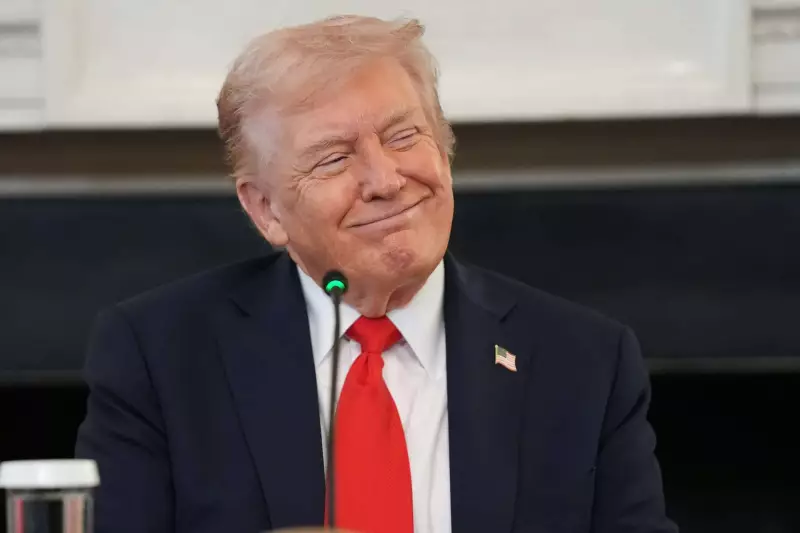
In a striking contradiction that highlights the complex relationship between American higher education and immigration policy, former US President Donald Trump has championed international students as crucial economic assets while his administration's policies have made studying in America increasingly difficult.
The $50 Billion Education Business
During a recent Fox News interview with host Laura Ingraham, Trump made an impassioned case for maintaining robust international student numbers, warning that reducing foreign student enrollment could spell financial disaster for American colleges and universities. International students collectively contribute nearly $50 billion annually to the US economy according to Department of Homeland Security data.
"You do not want to cut half of the students from all over the world — destroy our entire university system," Trump stated emphatically. He added, "I actually think it is good to have outside countries. Look, I want to be able to get along with the world."
India's Dominant Role in US Education Economy
Indian students represent a cornerstone of this international education ecosystem. Comprising 29.4 percent of all international students in the United States, Indian scholars contribute approximately a quarter of the total $50 billion economic impact. According to OECD data, Indian students accounted for 14 percent of all tertiary-level foreign students globally in 2023.
Despite a significant 39 percent enrollment drop attributed to stricter financial requirements and reduced work transition opportunities, the US still hosted 331,602 Indian students during the 2023-2024 academic year. This continuing presence underscores India's position as the largest source of international students for American institutions.
The Policy Contradiction
The irony emerges when comparing Trump's supportive rhetoric with his administration's actual policies. While publicly praising international students as "good for business," the Trump administration has implemented measures that directly challenge student mobility.
Thousands of student visas have been revoked under enhanced screening procedures that now include social media checks. Earlier this year, Secretary of State Marco Rubio temporarily paused student visa interviews before resuming them with stricter vetting requirements.
More concerning for universities is the proposed "Compact for Academic Excellence in Higher Education," which would cap international student enrollments at 15 percent of undergraduate populations and limit students from any single country to just 5 percent of the total.
Economic Consequences and University Resistance
The potential economic impact of reduced Indian student numbers is substantial. Analyses from the U.S. Chamber of Commerce and university financial reviews indicate that a 30-40 percent decline in Indian student enrollment could trigger $7 billion in economic losses and endanger approximately 60,000 American jobs.
These employment impacts would extend beyond university staff to include student housing employees, retail workers, and various service sector positions that depend on the international student ecosystem.
American universities are actively resisting these policy changes through legal channels. Harvard University successfully blocked an attempt to limit international student admissions, with a federal judge preventing the rule from taking effect. The US government has appealed this decision.
In another significant case, the American Association of University Professors and several faculty groups won a ruling against policies targeting students for their political views. These groups are now advocating for expanded protections, arguing that the First Amendment should shield non-citizens from arrest, detention, or deportation based on political speech.
The Administration's Defense
A White House spokesperson defended the administration's approach, stating, "President Trump will always put the safety of Americans first, and it is a privilege, not a right, to study in the United States. The administration is ensuring that guests in our country are not acting counter to American foreign policy interests."
This position reflects the fundamental tension in Trump's approach: acknowledging the economic benefits of international students while implementing policies that reflect security concerns and immigration restrictions.
The Bottom Line for US Education
The mathematics of international education reveals a clear picture. Indian and other international students provide essential financial support that keeps many American universities operational, funds campus jobs, supports local housing markets, and sustains community businesses.
Yet the very policies championed by the Trump administration threaten to constrict this vital economic pipeline. The paradox remains stark: students praised as educational and economic assets face increasing barriers to entry through visa hurdles, enrollment caps, and intensified vetting procedures.
For American higher education institutions, the message is unmistakable. They can celebrate international students as heroes and depend on their financial contributions, but must navigate a policy environment that often seems determined to limit their access. The challenge remains balancing economic pragmatism with political priorities in an increasingly global education marketplace.





